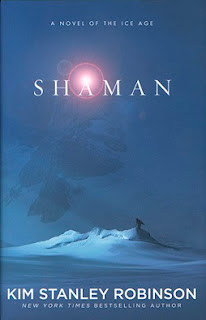Dear Martin: Reflections on MLK Day
Dear Martin: Reflections on MLK Day
Book: Dear Martin
Author: Nic Stone; published in 2017; listened to on audiobook (read by Dion Graham)
Of the books I've read focussing on racial injustice and prejudice, Dear Martin has been my favorite, so I decided I'd do a quick write-up for MLK day. I finished the book Oct 17th of 2022 (about three months ago from the time of this writing), and finished the sequel, Dear Justyce, on Nov 15th.
The premise of Dear Martin is that the protagonist, a black high school student named Justyce, starts a diary of sorts to help him process his experiences as a young black man. The book's title comes from Justyce's approach of journaling as if he were writing to Dr. Martin Luther King, Jr. Time and again, he asks what Martin would do in his situation. How to balance anger and compassion? How to respond to offenses, small and large?Superficially this book has a lot in common with The Hate U Give (by Angie Thomas). Both books focus on black high school students who attend predominantly white, affluent schools. Both characters feel like they inhabit two very different worlds in school versus their home neighborhoods. Both narratives have key plot elements driven by problematic policing and police brutality. Both touch on police perspectives (in the Hate U Give, her uncle is a black police officer, and in Dear Martin, it's insinuated that the offending officer is suffering from PTSD after seeing his partner killed). Both have a white character as the romantic love interest. Both actively contemplate cycles of violence involved when people act out of hate and anger. The books were even published within the same year. And yet, the two feel very different. I would agree with many opinions I've seen in that 1) both are worth reading and 2) I have a clear preference for one over the other.
I chose to write mostly about Dear Martin not just for the namesake, but because I liked it better. Although both are YA novels, Dear Martin felt more mature and believable to me, with some of the points being more nuanced and unanswerable. (I have seen a number of opinions that the writing style of Dear Martin is confusing, citing reasons like font changes. Since I listened to it on audiobook I can't speak to this, but maybe the audiobook is a particularly good option for these books. I never found the transitions to be confusing or jarring).
For reasons I can't entirely describe, I really felt like I was in Justyce's shoes as I was reading the book.
"...knowing what something is is not the same as knowing how something feels." - The Giver (the movie)
This feeling is a huge reason I am drawn to fiction. (A nonfiction book I liked that deals with many of these topics, which I also recommend, is Why I'm Not Talking to White People About Race Anymore.) When I read The Hate U Give, I didn't really feel in her shoes, I felt more like I was watching a young girl from the sidelines.
I think part of why I liked Dear Martin so much is that Justyce spends a lot of time wading through uncertainty. Questions like whether you're overreacting, how you should respond when you've been wronged, how to move forward in life when you know you've been treated unfairly and will continue to be treated that way — and not just you but your friends and family. These are the hard questions that Justyce creates space for in his letters to Martin.
In the sequel, Dear Justyce, we get a different protagonist — an incarcerated black teenager (who is a minor character in Dear Martin). This new protagonist was befriended by Justyce in the prequel, and instead of writing letters as a thought exercise in a diary, he's writing real letters, from jail, to Justyce. (This means we also get Justyce's letters back to him, which is a nice way to hear about what Justyce is up to after the last book). The perspective shift is important and intentional by the author, as Dear Martin (and The Hate U Give) focus on relatively privileged black protagonists. This book feels almost like a whodunnit mystery at times, which I liked. But it didn't make me think as hard as Dear Martin did — the two books just have very different feels but I liked them both. A potential drawback of Dear Justyce is that it's unrealistically optimistic at times. However, in the author's notes at the end she says this was done intentionally — even if it wasn't always realistic, she wanted to give people a story that would give them hope. This is a beautiful thing about fiction — we can craft a story that is better than reality, and that maybe can help us manifest that fiction into reality. Hope is perhaps the most important fuel for inspiring change.-G
On the list to reread someday? Yes





Comments
Post a Comment